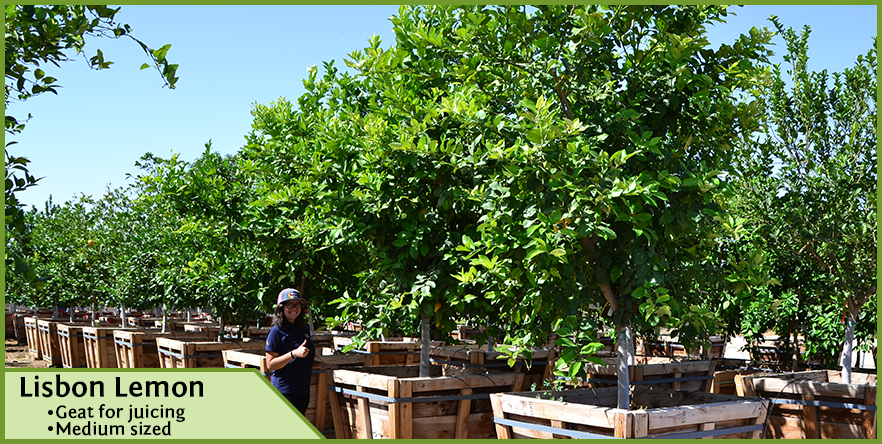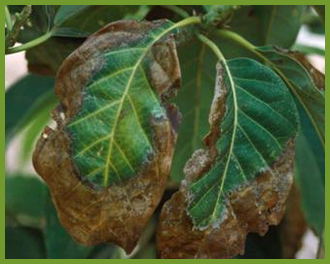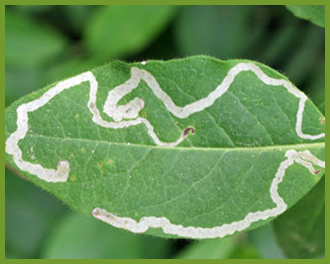Proper care for your fruit and citrus trees will give you a bontiful harvest
Super easy tasks that anyone can do!
Summer is here and if you have been paying attention to your fruit and citrus trees, they may be experiencing some summer stress, which means you will have to provide them with a little extra TLC if you're planning on eating some high quality fruit and citrus this year.
Whether you have an orange, lemon, lime, grapefruit, tangerine, tangelo, kumquat, nectarine, apricot, peach, plum, pomegranate, apple, or fig tree you are going to want to check out the recommendations from our nursery pros on what you can do to help you fruit and citrus tree this summer. And yes, you can grow all of those varieties in our region!
Sunburn
No, we're not talking about the nasty one from the pool this weekend. We're talking about your tree. And yes, trees can get a sunburn. In areas where intense sun and heat may scorch your tree, precautions should be taken to reduce damage. Trunks can be wrapped using appropriate materials available at Moon Valley Nurseries. Another method is to paint the trunk of the tree with tree paint available ain both white and brown (natural). Use the paint to whitewash trunks and exposed branches. Once application is usually sufficient for a summer of sunburn protection.
Nursery pro Sal Bracale talks about the importance and demonstrates how to wrap your citrus and fruit trees.
Watering
Citrus and fruit are originally native to tropical areas, which means that they do need frequent watering, especially in the summer.
There are a few noticeable signs that you are not watering your citrus or fruit tree enough. The first is the "Cigar" or leaf curling, which is when the leaves begin to curl in from the edges. This means insufficient water and the solution is to increase the depth of water. If you have a basin, you should extend it out to the edge of the branches and you need to enlarge it as the tree increases in size. If you ignore this your leaves will begin to fall off.
Homeowners are always asking us "how much should I water", and that depends on the size of the tree, age, and what variety of citrus or fruit is it. The general rule of thumb is a slow and low trickle. You want to make sure the root ball is saturated and that the water travels deep into the soil, roughly three feet. For schedules watering see our guide.
Mulch
A great way to minimize water loss is to add a layer of mulch around the base of your tree. This means that you need less water and mulch can help eliminate weeds. Mulch can consist of leaves, bark, wood chips, straw, or any other organic materials. To avoid any root diseases, keep the mulch away from the trunk of the tree. Mulch can also keep the soil temperature lower, which can allow for better root growth.
 Salt Burn
Salt Burn
The one downside to our water is that salts are a little more persistent and while trees can handle the salt the salt can accumulate in the soil which can cause sun burn. Salt burn is easily identifiable by your leaves developing brown edges and this happens more in the summer due to the water evaporation. Salt will always be more of an issue if you have clay or poorly drainer soils compared to sandy or well drained soils.
The best way to remove the salt is leaching, which is a slow and steady application of deep watering over a long period of time. This can help flush salts away from the root zone. You can also apply some gypsum or our Soil and water conditioner, which has been designed for our tough western soils by our nursery experts. To counteract the difficult soil in our region, our Soil & Water Conditioner contains two special elements. The first is sulfur which reduces the high Ph by flushing out the excess salt buildup in the root system. The removal of the excess salt creates a soil base that converts nutrients easily. The second is gypsum which is the other special element that will loosen soil leading to better drainage and healthier soils.
We would like to note that you will not see immediate results from salt burn. It will take time for the tree to recover. The best way to see how the tree is responding is to take a look at the new growth.
 Leaf Miner
Leaf Miner
These insecsts are only found on citrus trees, so those of you with fruit you do not need to worry about this. Leaf Miner is an insects that eats the inside of your leaf. There is no real damage done to the tree. The damage is only cosmetic. The damage can be found by a white trial on the underside of the leaf., When you see this the leaf miner is already gone
Now that you know how to properly care for your fruit or citrus tree, you can grow like the pros do at Moon Valley Nurseries. If you have additional questions, please visit any of our nursery locations and our pros can assist you! Click here to map a nursery location near you!


Submit a Comment